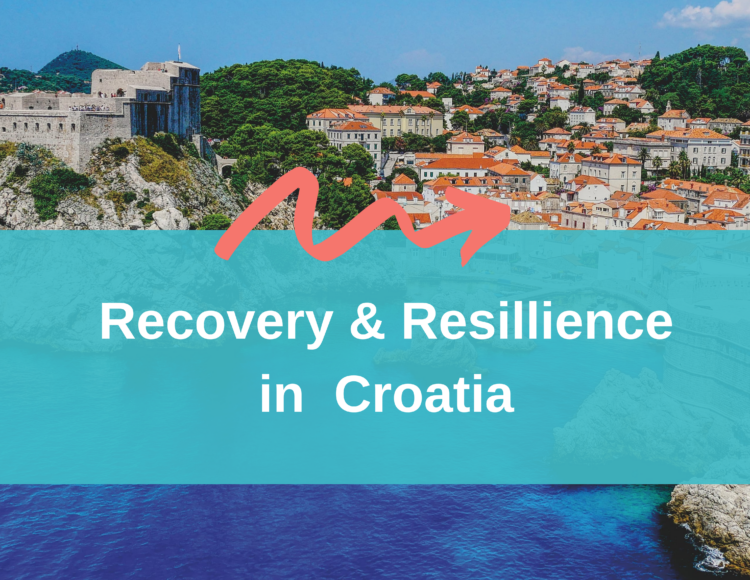In November 2021, Housing Europe launched its exclusive report ‘Impact of the Recovery Plans on the Social and Affordable Housing Sector’ that dug deeper into the content of this instrument designed to boost the economy after the hit of the health pandemic. As a follow-up to our comparative analysis, our Policy Officer, Edit Lakatos has also looked at the level of importance individual Member States have given to resilient and affordable housing.
- Croatia‘s recovery plan envisages projects worth €6.3 billion to cover six key areas.
The totality of this budget will be covered by grants from the RRF. 54% of the funds will be invested to increase competitiveness, such as green transition, energy transition, renewable energy sources, transport and traffic infrastructure, water management, and broadband infrastructure. 2% would go for the reconstruction of buildings.
Relevant parts
Initiative 6.1: Renovation of buildings (€ 789 million) that concerns investments and reforms aiming to encourage comprehensive renovation of buildings, including energy renovation, structural reinforcement and post-earthquake renovation. Renovation will cover multi-dwelling and public buildings, including health and educational facilities, as well as buildings of cultural good.
The Reform C6.1.R1 – Decarbonisation of buildings will include the adoption of energy efficiency renovation programmes for the period 2021-2030 for multi-dwelling buildings, public buildings and a special category of buildings, as well as the adoption of the energy poverty reduction programme:
- Investment C6.1.R1-I1 – Energy renovation of buildings is going to implement the reform with the aim to reduce energy consumption for heating in multi-dwelling and public sector buildings by at least 50%.
- Investment C6.1.R1-I3 – Energy renovation of buildings with the status of a cultural good
Other reforms:
- Reform C6.1.R2 – Developing a framework for ensuring adequate skills in the context of green jobs needed for post-earthquake reconstruction;
- Reform C6.1.R3 – Increasing efficiency, reduction of administrative burden and digitalisation of the renovation process;
- Reform C6.1.R5 – Introduction of a new model of green urban renewal strategies and implementation of a pilot project for the development of green infrastructure and the circular management of buildings and space;
- Reform C6.1.R6 – Pilot project for the establishment and implementation of systematic management energy and the development of a new financing model.
In addition, the following investments will have an impact on the sector:
- Investment C1.1.1 R4-I1 Support to enterprises for the transition to an energy- and resource efficient economy
The investment will finance, through grants, productive investments by SMEs in green technologies that contribute to an energy- and resource efficient economy in energy-intensive industries, including chemical, construction and woodworking industries.
- Investment C.1.3 R1-I3 – Disaster risk reduction programme
The investment will improve flood protection measures for 20 000 inhabitants of Croatia, prioritising nature-based solutions by revitalising watercourses, connecting abandoned sleeves and creating secondary wetland habitats, as well as removing invasive species.
Find the detailed country analyses for Croatia in our download section.
Read the full report.
Contact Edit Lakatos if you would like to know more.
